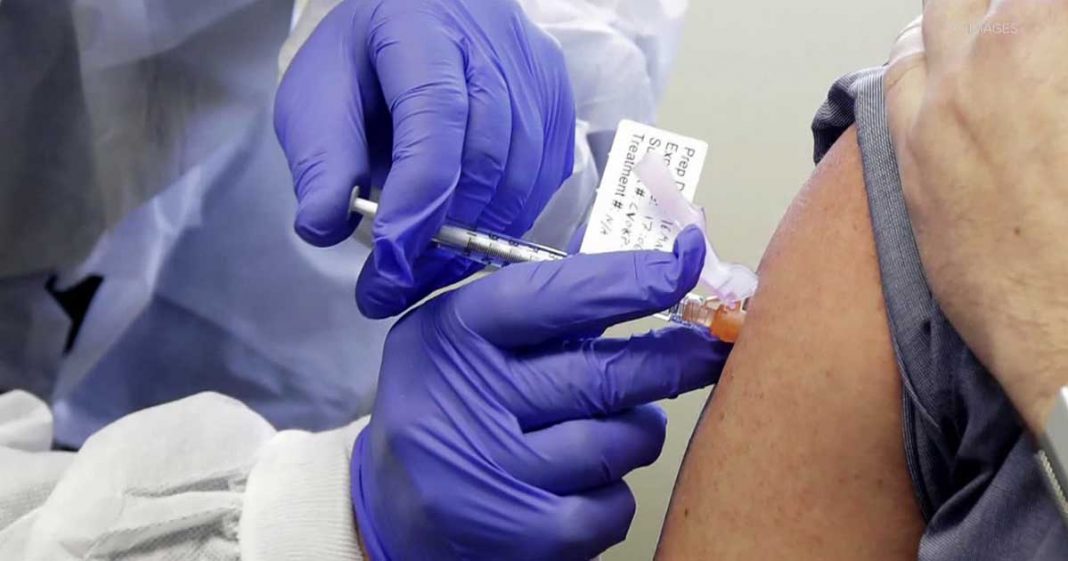As a vaccine jointly developed by Pfizer (American pharmaceutical company) and BioNTech (German company) is celebrated across the world for its effectiveness, developing countries like Pakistan are watching the events with helplessness and desperation.
The trials of the Pfizer vaccine focused on 94 participants out of a total number of 43,000 people. These participants were offered the two-dose vaccine and 28 days after they received their first inoculation, remained protected.
Read more: US signs $2 billion deal for coronavirus vaccines with Pfizer and BioNTech
As the announcement following the ongoing phase-3 trials was made, oil prices soared and stock markets across Europe bounced back.
CEO Pfizer Dr Albert Bourla said: “Today is a great day for science and humanity. The first set of results from our phase 3 COVID-19 vaccine trial provides the initial evidence of our vaccine’s ability to prevent Covid-19.”
“The first set of results from our Phase 3 Covid-19 vaccine trial provides the initial evidence of our vaccine’s ability to prevent Covid-19,” Bourla said in a statement.
“We are a significant step closer to providing people around the world with a much-needed breakthrough to help bring an end to this global health crisis,” he added.
The outgoing US President Donald Trump termed the vaccine’s success a “great news”.
Prof. Ugur Sahin, BioNTech co-founder and CEO said about the jointly developed vaccine: “When we embarked on this journey 10 months ago this is what we aspired to achieve. Especially today, while we are all in the midst of a second wave and many of us in lockdown, we appreciate even more how important this milestone is on our path towards ending this pandemic and for all of us to regain a sense of normality. We will continue to collect further data as the trial continues to enroll for a final analysis planned when a total of 164 confirmed COVID-19 cases have accrued. I would like to thank everyone who has contributed to make this important achievement possible.”
The two companies expect to supply up to 50 million vaccine doses globally in 2020, and up to 1.3 billion in 2021.
Is Pfizer vaccine practical in Pakistan?
According to Dr Atta ur Rehman, the Chairman of Prime Minister’s Taskforce on Science and Technology Pfizer-BioNTech vaccine is not suitable for Pakistan.
He said sounding pessimistic: “We should not think much about this vaccine, instead focus on other vaccines that are being developed and have seen similar results but haven’t been announced with fanfare. They are working quietly.”
The scientist made these assertions based on solid reasons.
“The problem is that the FDA has not given the approval, the regulatory bodies have to approve and will take two months,” said Dr Rehman.
Another major problem (quite justifiably) is the conditions to be ensured for the vaccine for e.g. a temperature of -80°C is required. Which, given the limited resources of Pakistan cannot be ensured.
Moreover, the vaccine costs around 40 USD which is quite expensive given the rupee-dollar parity.
The Pfizer Vaccine will cost about 40 dollars per person. Even if the Pak gov somehow pays for it/gets aid. It needs to be stored at -50 C to -70 C. How will it be distributed?
I can’t imagine Pakistani pharmacies selling it with “barf ka tukray” in shopper! Big challenge!
— Ali Moeen Nawazish (@am_nawazish) November 10, 2020
Read more: Pfizer’s Covid-19 vaccine 90% effective in Phase 3 trial
Chinese vaccines ‘promising’
Pakistan – if anything – should look towards its northern neighbour China for possible vaccines. Currently, Pakistan is administering trials of two Chinese vaccines, particularly in Karachi University’s International Centre for Chemical and Biological Sciences and Indus Hospital. And they are showing positive results.
Sinopharm, a Chinese pharmaceutical company has also developed a vaccine which is showing promising results in phase-3 trials.
Given the close relationship between the two countries, Pakistan is expected to get the vaccine from China at “reasonable rates”.
Unlike Pfizer vaccine, Chinese vaccines can be readily transported in normal temperatures and do not have to be kept at -80°C degrees which makes them the ideal choice for developing nations.
“There are 12 company’s who’s vaccine are in phase 3 of clinical trial and Pfizer was one of them. And Chinese companies are ahead,” said Dr Ata ur Rehman.
So it’s quite obvious that Pakistan should not pin hopes to the Pfizer-BioNTech vaccine as even if the vaccine is available for the country — which is very rare; countries like Britain have already procured 40m doses, with 10m set to be available by year’s end — the on-ground storage conditions are in no way feasible for the vaccine.
So in that scenario, a Chinese vaccine remains the best bet in terms of the cost, availability and feasibility.














